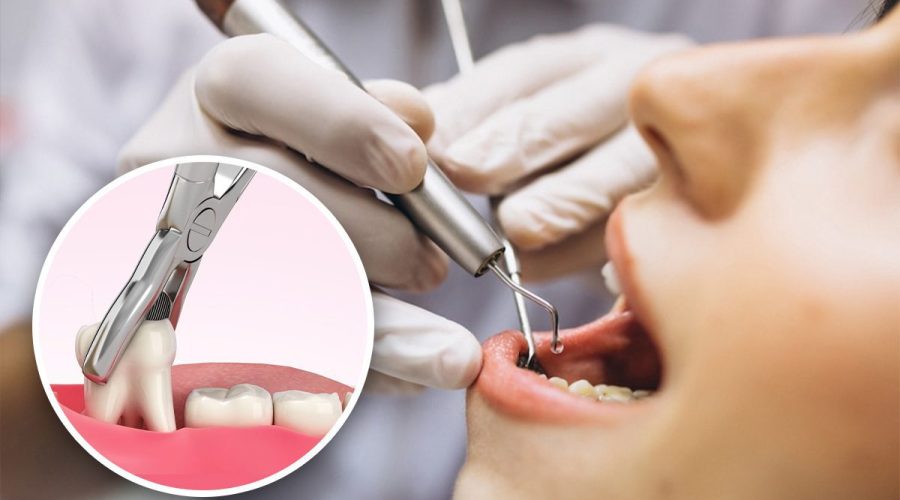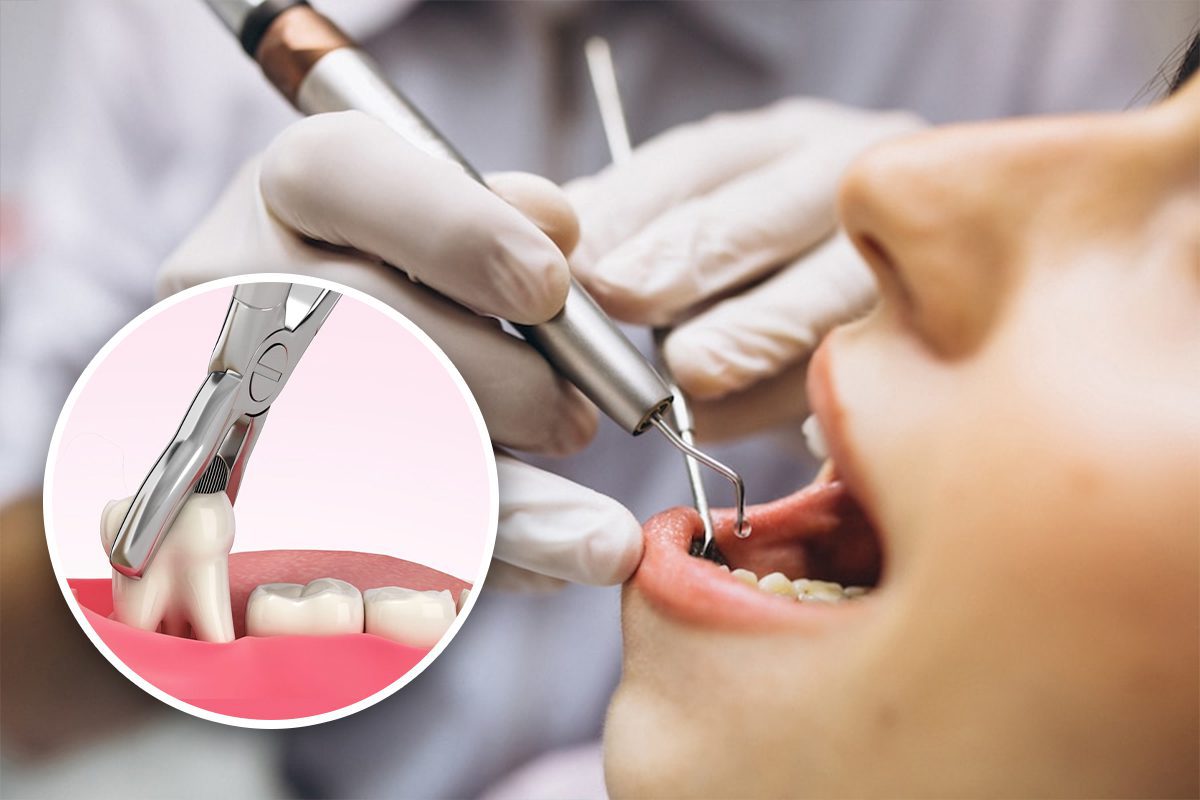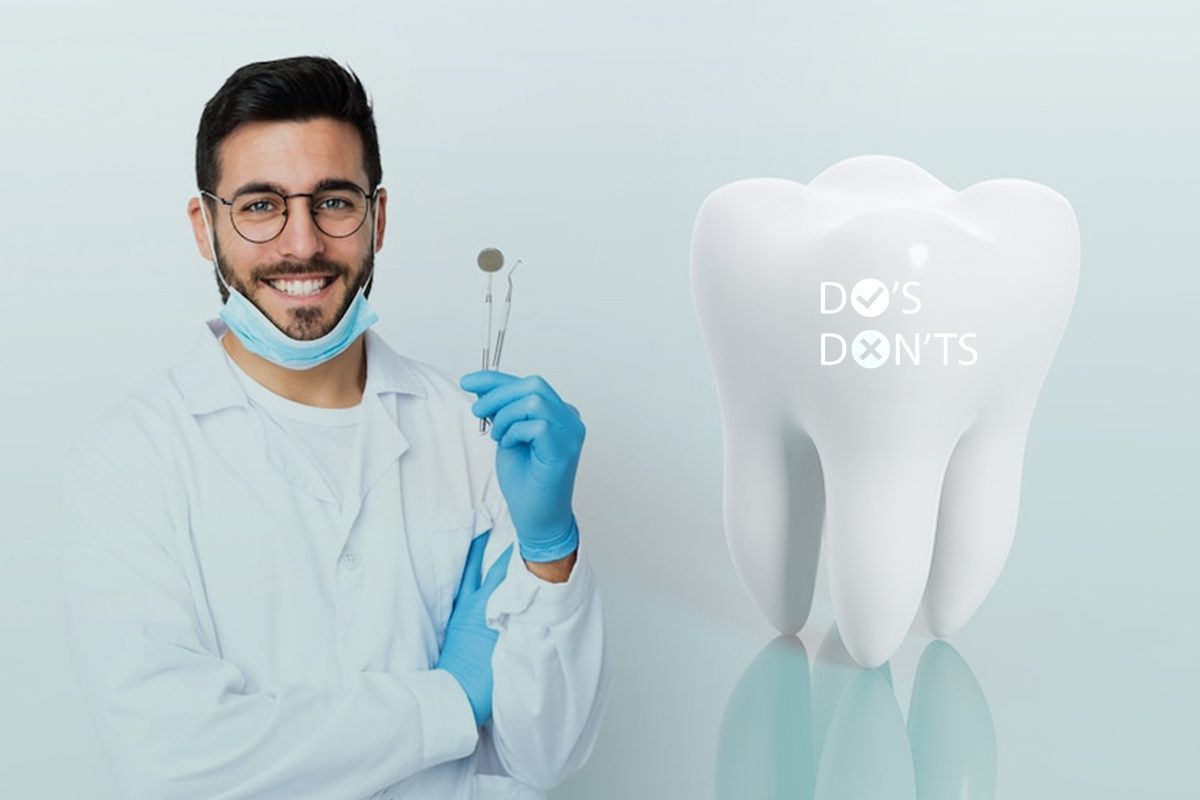The wisdom teeth, also called molars, usually appear between the ages of 17 and 25 and are referred to as wisdom teeth. A wisdom tooth extraction is a procedure carried out to remove the third set of molars. The recovery process from a wisdom tooth extraction in Antwerp can take up to six weeks, but most people can resume their normal activities a day or two after the procedure.
There is a good chance that you have at least one wisdom tooth impacted, which is when its growth is not allowed to proceed normally. Your wisdom teeth can damage the surrounding teeth and bones if left in place, either due to impaction or because they are likely to cause problems, and you might need a wisdom tooth removal.
Common Causes for Wisdom Teeth Removal
Your wisdom teeth don’t usually need to be removed if they’re impacted but aren’t causing any problems. This is because there’s no proven benefit to doing this, and it carries the risk of complications.
There are times when wisdom teeth can cause dental problems if they are impacted or have not broken through the gum surface yet and require tooth extraction wisdom. There are many reasons why food and bacteria can get trapped around the edge of the wisdom teeth and cause plaque to build up around the edge, resulting in the following:
- Having decayed teeth (dental caries)
- Periodontitis and gingivitis are other terms for gum disease
- An infection of the soft tissues surrounding a tooth caused by plaque is called pericoronitis.
- Cheek, tongue, or throat cellulitis – caused by bacteria
- The result of a bacterial infection is the formation of an abscess around your wisdom teeth or in the surrounding tissue
- Wisdom teeth may develop cysts or benign growths when they have not yet penetrated the gum (a fluid-filled swelling).
A good number of these conditions are treatable with antibiotics and antiseptic mouthwashes. It is usually recommended for wisdom tooth extraction when other treatments haven’t been helpful.
Purpose of Wisdom Tooth Removal Surgery
The dentist’s oral surgeon will initially recommend this procedure if they determine from an exam and X-rays that your wisdom teeth are impacted or may likely cause dental problems due to their position. Some potential problems associated with wisdom teeth include the following: (Not everyone has wisdom teeth, but most people have between one and four.)
- An infection
- A decaying tooth
- Teeth damage in the surrounding area
- Periodontal disease
- Loss of bone
- Loss of teeth
During your routine dental appointments, your dentist will monitor the development of your wisdom teeth with dental X-rays and during regular dental appointments.
They may recommend wisdom teeth removal surgery to prevent potential problems if you don’t have any current symptoms. Maintaining good oral hygiene when wisdom teeth are present can be hard since they are in an area that is difficult to clean.
Also Read: Things to Consider for Finding a Good Dental Clinic in Antwerp, Belgium
How to Prepare
As soon as you schedule an appointment with a dental clinic near you, the dentist will determine if they can perform the procedure in their office or if you need to see a dental surgeon complete it. There is a risk of this happening when the tooth is deeply impacted.
As soon as you feel ready and well-informed, you should have a chance to ask any questions you might have about your problem and the upcoming procedure. Your comfort will be assured throughout the entire treatment process if you do this.
Any wisdom tooth extraction near me is typically done as an outpatient procedure. The method will be completed right after you go home. You cannot drive home after the procedure since anesthesia is administered during the procedure. Taking a friend or a family member to the dental clinic is a good idea.
You might need to be under anesthesia before surgery, so avoid eating beforehand. If you are taking any medication, let your dentist know so medication interactions can be avoided.
Getting to the airport early is a crucial part of your preparation. Getting to the surgery on time will help you feel relaxed and comfortable.
Do’s and Don’ts After the Procedure
Depending on the individual, anesthesia can have a different effect on them. The recovery process will depend on whether you had a local anesthetic and are feeling alert. You may be able to drive yourself home to begin your recovery shortly after. The person driving you home will need to be able to drive you if you underwent general anesthesia or are still drowsy after your surgery. It may even be possible for you to return to work or be able to carry on with your normal activities after your wisdom tooth extraction mortar.
As a general rule, surgery tends to cause little to no pain for most people. There is likely swelling and mild discomfort for about three or four days after the procedure. It may take your mouth a few weeks to fully heal after you have a dental procedure.
Ensure that you follow the instructions given by your doctor so that you can recover faster. For the first 3 days following surgery, here are a few tips that will help you get through it:
Dos
- To reduce swelling or change in skin color, apply an ice pack to your face.
- If you have a sore jaw, apply a heat pack.
- Your jaw will benefit from gentle opening and closing.
- Make soups, pasta, and rice soft.
- Fluids should be consumed in plenty.
- The second day is the perfect time to brush your teeth. Blood clots should not be brushed against.
- Pain or swelling can be relieved with the medicines your doctor prescribes.
- Fever or persistent pain, or swelling should be reported to your doctor.
Don’ts
- Drinking through a straw is not a good idea. Your mouth may heal faster if you suck loosens blood clots.
- Keep your mouth clean by not rinsing too harshly. Your doctor may recommend Saltwater rinses.
- Keep your wounds clean by not eating crunchy, hard, or sticky foods.
- Avoid smoking. Healing can be slowed by smoking.
When Should You Call Your Dentist?
You should call your dentist or oral surgeon immediately if you notice any of these signs or symptoms following your surgery:
- A swelling that worsens over some time
- Symptoms of fever
- There is the ineffectiveness of prescribed pain medications in combating pain
- If you rinse your mouth with salt water, you will not be able to get rid of any lingering bad aftertaste in your mouth
- When pus gathers inside a socket or oozes from the wound, the socket is considered to be infected
- Having no feeling or feeling numb for a long period of time
Once your wisdom teeth have been removed, it will usually take about a week to get back to your normal routine, but soon you will smile pain-free again!
Keep an eye on how your wisdom teeth are coming in by going to your dentist regularly for regular dental checkups so your dentist can track how they are coming in over time. As frightening as it may seem to have your third molars extracted, the wisdom tooth extraction in Brussels can be fairly routine and help ensure a bright, healthy future for your smile.
Wisdom Tooth Extraction FAQs
FAQ1. How long does it take to recover from getting wisdom teeth pulled?
There can be some recovery time required after your wisdom tooth or teeth have been removed, which can take up to two weeks. You may experience the following symptoms during this period: a swollen mouth and cheeks – this will be worse for the first few days and then gradually improve. Gently pressing a cold cloth against your face can help reduce swelling during this period.
FAQ2. Is the wisdom tooth removal process painful?
As your wisdom teeth are removed, you shouldn’t feel any pain since the area of the mouth where the teeth are located will be numb. There is no set timeframe for how long it will take to remove the tooth. In any case, if you experience pain during the procedure, you should inform your dentist or oral surgeon so that they can give you more anesthesia to ease the pain.
FAQ3. Is wisdom teeth removal a major surgery?
Wisdom teeth removal near me is considered a major surgical procedure. The first thing to do is numb your gums with a local anesthetic. Patients may also choose sedation dentistry to be conscious of the surgery, be minimally aware, or be completely asleep.
FAQ4. What can you not do after wisdom teeth removal?
In the first 24 hours following a tooth extraction, it is important that you refrain from rinsing, spitting, drinking hot drinks, or doing anything else that could dislodge the blood clot that forms in the empty tooth socket (these blood clots assist the healing process). Refrain from consuming alcohol or indulging in smoking. You should eat soft or liquid food if you can chew with your other teeth for a few days.
FAQ5. What are the side effects of wisdom teeth removal?
- The presence of a painful dry socket at the site of the surgical wound (socket) or the exposure of bone due to the loss of the post-operative blood clot from the site of the surgical wound
- A socket infection is caused by bacteria or food particles trapped in the socket.
- A tooth, nerve, jawbone, sinus, or any other part of the body that’s close by may be damaged
FAQ6. Can I drink water after wisdom teeth removal?
Yes, it is recommended that you drink plenty of water after your surgery. Within the first 24 hours of your surgery, refrain from drinking alcoholic, caffeinated, carbonated, or hot beverages. If you have problems with your blood clot, you should avoid drinking with a straw for at least a week since the sucking action could dislodge the clot from the socket.
FAQ7. Can I brush my teeth after wisdom teeth removal?
You must follow your doctor’s instructions while recovering from wisdom teeth removal to prevent an infection. As long as you brush your teeth gently after the surgery, you should be able to – and should – keep them clean afterwards.
FAQ8. Can wisdom teeth grow back?
After the wisdom teeth have been removed, they don’t grow back unless removed surgically. However, an individual might not only have four wisdom teeth but may have more than four. It is called supernumerary teeth when extra teeth erupt after your original wisdom teeth have been removed.
FAQ9. How do you mentally prepare for wisdom teeth removal?
- Take a break from work or school.
- Seek a ride.
- Take your medication.
- Make sure you buy soft foods.
- Make entertainment options available.
- Ask your dentist any questions you have.
- You should familiarize yourself with the process.




